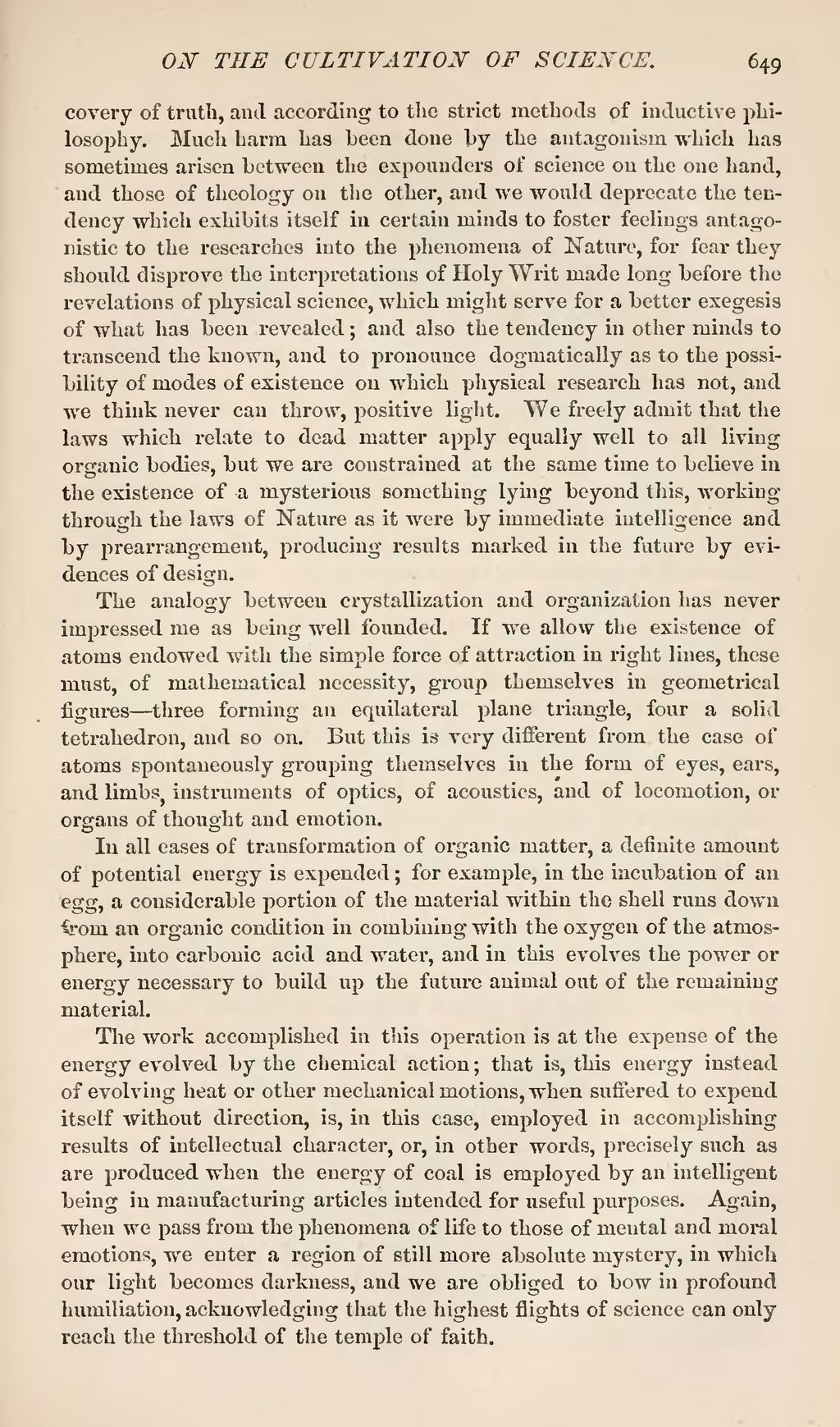covery of truth, and according to the strict methods of inductive philosophy. Much harm has been done by the antagonism which has sometimes arisen between the expounders of science on the one hand, and those of theology on the other, and we would deprecate the tendency which exhibits itself in certain minds to foster feelings antagonistic to the researches into the phenomena of Nature, for fear they should disprove the interpretations of Holy Writ made long before the revelations of physical science, which might serve for a better exegesis of what has been revealed; and also the tendency in other minds to transcend the known, and to pronounce dogmatically as to the possibility of modes of existence on which physical research has not, and we think never can throw, positive light. We freely admit that the laws which relate to dead matter apply equally well to all living organic bodies, but we are constrained at the same time to believe in the existence of a mysterious something lying beyond this, working through the laws of Nature as it were by immediate intelligence and by prearrangement, producing results marked in the future by evidences of design.
The analogy between crystallization and organization has never impressed me as being well founded. If we allow the existence of atoms endowed with the simple force of attraction in right lines, these must, of mathematical necessity, group themselves in geometrical figures—three forming an equilateral plane triangle, four a solid tetrahedron, and so on. But this is very different from the case of atoms spontaneously grouping themselves in the form of eyes, ears, and limbs, instruments of optics, of acoustics, and of locomotion, or organs of thought and emotion.
In all cases of transformation of organic matter, a definite amount of potential energy is expended; for example, in the incubation of an egg, a considerable portion of the material within the shell runs down from an organic condition in combining with the oxygen of the atmosphere, into carbonic acid and water, and in this evolves the power or energy necessary to build up the future animal out of the remaining material.
The work accomplished in this operation is at the expense of the energy evolved by the chemical action; that is, this energy instead of evolving heat or other mechanical motions, when suffered to expend itself without direction, is, in this case, employed in accomplishing results of intellectual character, or, in other words, precisely such as are produced when the energy of coal is employed by an intelligent being in manufacturing articles intended for useful purposes. Again, when we pass from the phenomena of life to those of mental and moral emotions, we enter a region of still more absolute mystery, in which our light becomes darkness, and we are obliged to bow in profound humiliation, acknowledging that the highest flights of science can only reach the threshold of the temple of faith.
